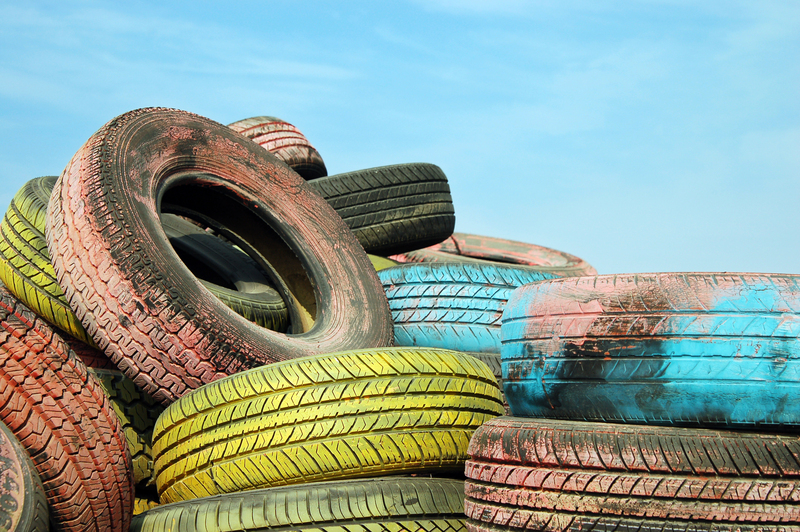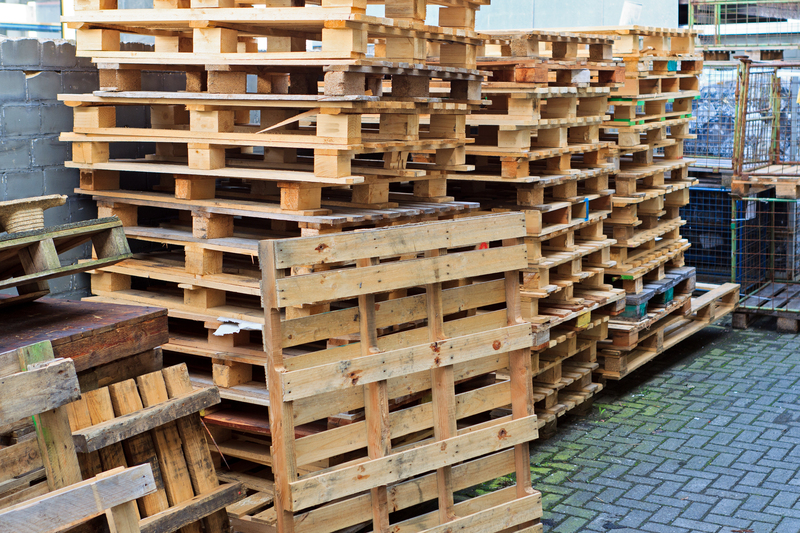Community Action for Safe PPE Waste Disposal
The COVID-19 pandemic has changed the way society views personal protective equipment (PPE). Face masks, gloves, face shields, and other equipment have become routine, drastically increasing the volume of PPE waste entering our environment. Without responsible disposal, this surge in medical litter poses threats not only to the environment but to public health as well. Community action for safe PPE waste disposal is therefore more important than ever, uniting citizens, local authorities, and organizations in a shared mission: protecting both people and the planet.
Understanding PPE Waste: A Growing Environmental Challenge
Personal Protective Equipment waste includes single-use masks, gloves, protective gowns, and sanitizing wipes. These items--primarily made from plastics and synthetic fibers--are non-biodegradable and can persist in landfills, waterways, and natural habitats for centuries.
The Risks of Improper PPE Disposal- Environmental Pollution: Discarded PPE can clog sewage systems, end up in rivers and oceans, and ultimately threaten wildlife through ingestion or entanglement.
- Public Health Threat: Used PPE may carry pathogenic microorganisms. Improper disposal increases the risk of disease transmission to sanitation workers and the general public.
- Visual Pollution: Streets, parks, and beaches littered with PPE decrease the aesthetic and recreational value of public spaces.
The Importance of Safe PPE Waste Disposal
Safe PPE disposal is vital for creating a sustainable, healthy community. Community-led solutions play a crucial role in tackling this emerging waste crisis, ensuring that protective gear designed to keep us safe does not end up harming our surroundings.

Why Community Action Matters
Individual actions are critical, but collective community efforts bring exponential benefits. Through shared responsibility, communities can address PPE waste at the source, foster educational initiatives, and implement effective safe PPE waste management solutions.
Benefits of Community-Led PPE Waste Disposal Initiatives:- Enhanced Local Awareness - Educational campaigns promote best practices for PPE disposal.
- Decreased Litter - Organized waste collection prevents PPE from polluting public spaces.
- Support for Sanitation Workers - Proper segregation reduces direct contact with potentially infectious materials.
- Long-term Sustainability - Reusable PPE and recycling programs reduce overall plastic waste.
Community Action for Safe PPE Waste Disposal: Key Strategies
1. Public Education and Awareness Campaigns
Knowledge is the first step toward change. Communities must organize public awareness drives on the importance of safe PPE waste disposal. These can include:
- Information Sessions: Host webinars, school workshops, or community meetings explaining the dangers of PPE littering.
- Instructional Materials: Distribute flyers, posters, and online guides illustrating proper disposal techniques.
- Social Media Initiatives: Launch hashtag campaigns or infographics to reach a wider audience and encourage responsible behavior.
2. Designated PPE Collection Points
One key aspect of safe PPE waste disposal is having accessible, clearly marked collection bins. Community organizations, businesses, schools, and local authorities can collaborate to install these bins in strategic locations such as:
- Supermarkets and shopping centers
- Community centers and city halls
- Hospitals and clinics
- Public transit stations
- Parks and recreational areas
Providing these stations, along with clear signage, makes it easy for individuals to do the right thing.
3. Organize Regular PPE Clean-Up Drives
Community clean-up events encourage direct engagement in removing improperly discarded PPE from public places. These events can be bolstered by:
- Volunteer Incentives: Recognize and reward participants.
- Local Partnerships: Work with environmental NGOs or sanitation departments for supplies and support.
- Media Coverage: Increase visibility and community participation through local news stories.
4. Advocacy for Improved Municipal Waste Management
Community groups can advocate for better municipal waste handling policies, such as:
- Provision of segregated PPE waste collection for households and businesses.
- Investment in treatment and disinfection facilities for contaminated waste.
- Mandatory PPE recycling or safe incineration methods.
5. Promoting Reusable and Eco-friendly PPE
Reducing the burden of single-use PPE is another community-driven solution. Encourage the use of reusable masks and biodegradable alternatives. Local sewing clubs or small businesses can produce washable face coverings. Informational sessions can teach proper cleaning and maintenance to ensure safety.
Case Studies: Success Stories in Community PPE Waste Management
Case Study 1: Singapore's Smart Bin Initiative
In response to the rise in PPE litter, Singapore's National Environment Agency partnered with tech companies to develop smart PPE collection bins equipped with sensors that alert authorities when bins are full. This ensures timely disposal and reduces overflow, showcasing the impact of community and technology collaboration.
Case Study 2: Community-Led Clean-Ups in India
Several towns in India have launched volunteer-driven PPE clean-up campaigns in public market areas, railway stations, and bus stops. These teams collect discarded PPE while educating residents on disposal protocols, leading to a significant reduction in local PPE waste.
Case Study 3: Educational Outreach in the United Kingdom
Schools across the UK have incorporated PPE waste management into their science and civic curricula, empowering students to act as community ambassadors. As a result, children influence family practices, and community-wide compliance with safe disposal has improved.
How Individuals Can Make a Difference
- Always dispose of PPE in designated bins--never litter or flush masks and gloves down toilets.
- Follow local disposal guidelines--some areas require sealing used PPE in separate bags.
- Promote reusable masks and only use single-use items when absolutely necessary.
- Inform others--share knowledge with friends and neighbors about the importance of correct PPE disposal.
- Participate in or organize community clean-up events.
The Role of Schools, Businesses, and Healthcare Facilities
Institutions play a key role in advancing safe PPE waste solutions:
- Schools: Incorporate PPE disposal lessons into curricula; provide easy-access bins.
- Businesses: Offer disposal stations for staff and customers; promote reusable gear.
- Healthcare Facilities: Ensure all staff are trained in waste segregation; use tamper-proof containers for contaminated items.
Challenges and Solutions in Community PPE Waste Disposal
- Lack of Awareness: Overcome by ongoing education and consistent messaging through multiple channels.
- Low Availability of PPE Disposal Bins: Addressed by fundraising, grant applications, or local business sponsorship.
- Misconceptions About Reusable PPE: Dispelled through scientific information and safety demonstrations.
- PPE Waste Handling for Special Populations: Consider the needs of individuals with disabilities or high-exposure jobs in planning disposal accessibility and safety.
Effective Communication Techniques
For community action for safe PPE waste disposal to succeed, clear and compassionate communication is key. Recommendations for impactful messaging include:
- Use visuals, such as infographics and videos, for easy understanding.
- Translate materials into multiple languages to reach diverse groups.
- Engage local leaders and celebrities to amplify messages.
- Create child-friendly content for families and schools.

Future Perspectives: Building a PPE-Safe Society
The transition to a PPE-safe society requires ongoing adaptation and innovation. The integration of smart waste technology, bioplastics research, and improved waste-to-energy options could further revolutionize how communities handle PPE waste long-term.
The Path Forward
- Promote extended producer responsibility--manufacturers should invest in eco-friendly PPE and contribute to collection systems.
- Strengthen regulations and incentives for proper PPE disposal and recycling.
- Continue public engagement to make safe PPE habits second nature.
Conclusion: The Power of Collective Responsibility
Safe PPE waste disposal is not just an individual concern--it's a collective community responsibility. Through education, advocacy, and active participation, communities worldwide can turn the tide against PPE pollution. By combining practical solutions, informed leadership, and a spirit of cooperation, we can create cleaner, safer, and healthier communities for all.
Whether you are an individual, educator, business owner, or policymaker, your contribution counts. Take the first step today: Promote and participate in community action for safe PPE waste disposal--and help build a sustainable future for generations to come.
